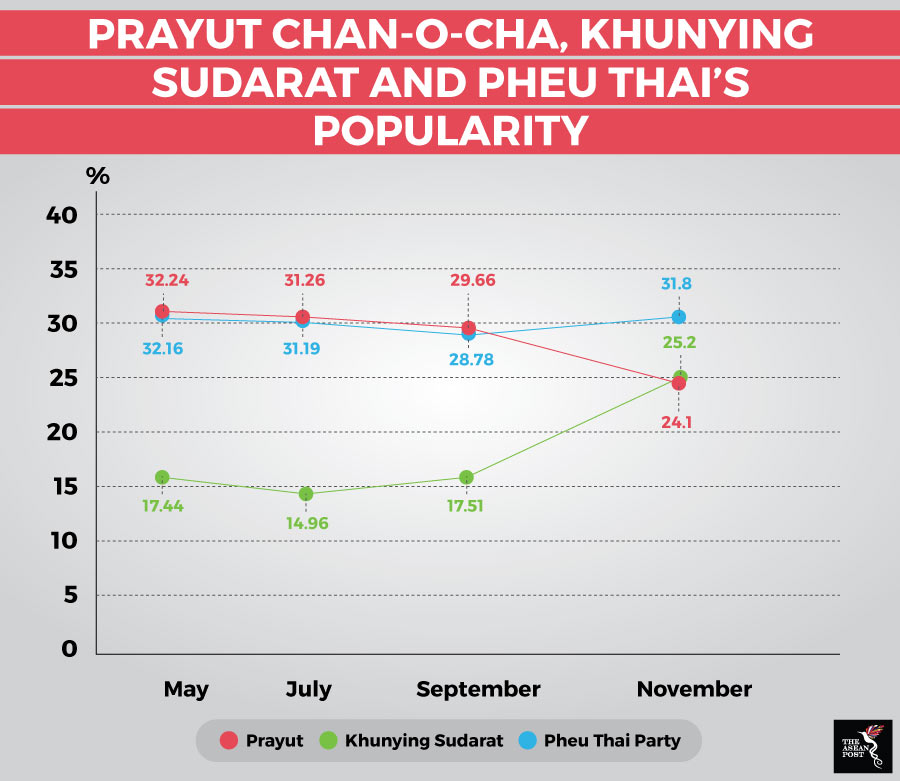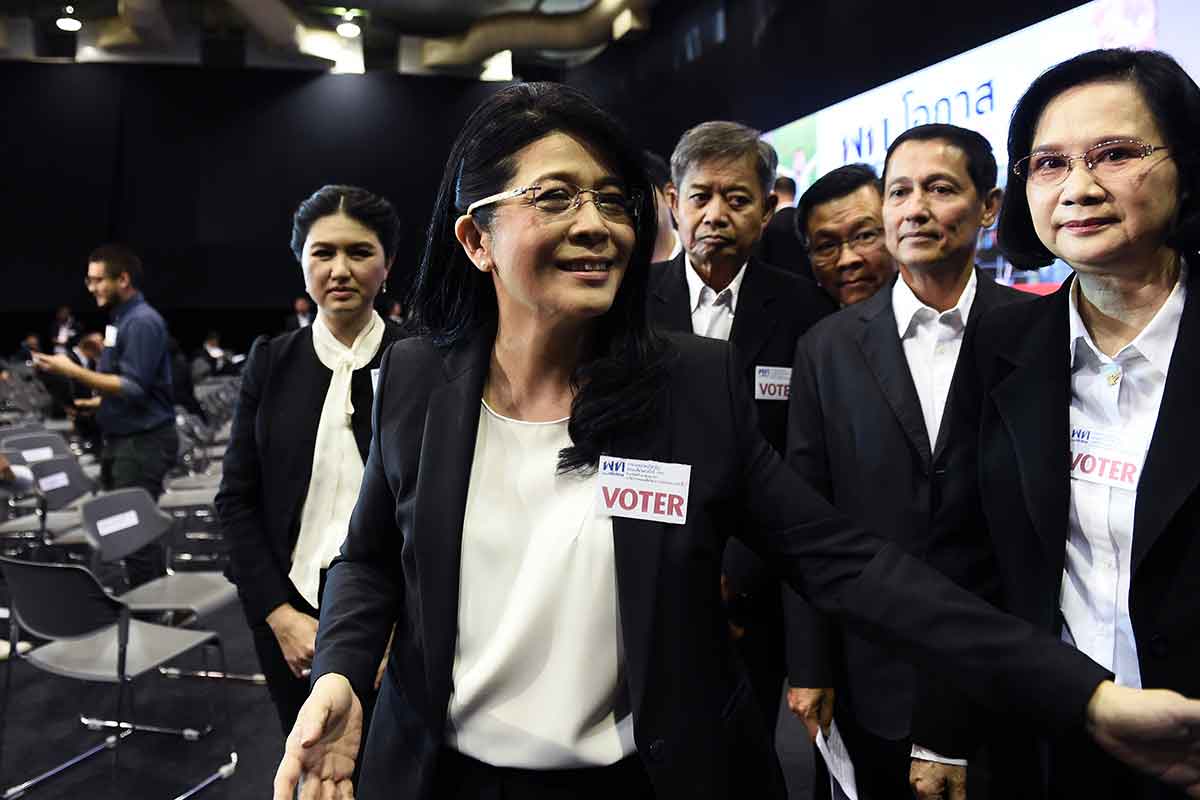Whether or not critics have their suspicions about the National Institute of Development Administration’s (NIDA) independence, that does not change the fact that the institute recently came up with surprising results for its latest poll. For the first time in its series of polls gauging the opinions of Thais when it comes to their choice for next prime minister, Prayut Chan-o-cha has fallen to second place. The winner in November’s poll? None other than Pheu Thai’s Khunying Sudarat, chairwoman of the party's election strategy committee.
This deals an especially heavy blow to the prime minister for two reasons: the election is slated for 24 February (merely months away), and of all those who could have come out on top, it’s a Pheu Thai member that Thais have chosen.
No one has forgotten that it was Pheu Thai - in the first place - that the National Council of Peace and Order (NCPO) ousted under Prayut during the 2014 military coup. The coupe was carried out based on allegations of corruption revolving around the Shinawatras. The military government had even gone so far as to try to make it difficult for Pheu Thai to regain power after a democratic election through its new constitution, which the military has said was aimed at weakening major political parties.
Under the new constitution, constituency seats in provinces previously held by the Shinawatras have been effectively cut, giving birth to several new breakaway parties possibly loyal to Pheu Thai.
How Prayut’s popularity dropped
Numerous theories can be made on how Prayut dropped to second place in the polls but the fact remains that Prayut’s popularity has been dwindling slowly. The signs were always there and as Prayut’s popularity wanes, Sudarat’s has grown.
As far back as May, Prayut was first choice for prime minister, with 32.2 percent of the poll, while Sudarat came in second at 17.4 percent. Then, in July, Prayut’s rating fell to 31.3 percent but still held on to first place, while Sudarat also saw a fall to 14.9 percent in second place. In September, Prayut fell again to 29.7 percent, while Sudarat secured 17.5 percent. Finally, just recently, Prayut fell to second place at 24.1 percent, while Sudarat topped the ratings list at 25.2 percent.
Pheu Thai has always remained the most popular choice of political party for Thais.
 Source: National Institute of Development Administration
Source: National Institute of Development Administration
There are two possible explanations behind Pheu Thai’s success: the first is based on Pheu Thai’s experience as a ruling party with a victorious streak from 2001 all the way to the military coup in 2014. A second reason, and one that could also explain Prayut’s drop in popularity, could be Pheu Thai’s close relationship with Thailand’s poor.
Pheu Thai receives most of its support from the North and Northeast regions of Thailand, and rural and urban poor. The reason for this lies in the fact that it was the Shinawatras who came up with policies such as universal healthcare, debt relief, loans for start-up businesses and big rice subsidies for farmers.
Today, while the gap between rich and poor has been steadily narrowing in Thailand with low-income earners making more gains than the wealthy in recent years, the World Bank’s executive director for Southeast Asia Ulrich Zachau says inequality is still high.
“In Thailand, inequality has been declining. It is still high, but the poor have been gaining more than the rich, and this is the most striking feature of economic and social development in Thailand and in the sub-region,” he said during an interview with local media in Thailand recently.
The popularity of one of Thailand’s most controversial rap songs to date - “What my country's got” (Prathet Goo Mee) by Thai rap group Rap Against Dictatorship - must have also hurt Prayut’s popularity especially among the young and the urban poor.
What Prayut can do
Thais have been promised over and over again of an election date and they are getting anxious. Some of this anxiousness may have also translated to anger towards the NCPO and Prayut as Thais see the two as the reason for delay after delay. Thai voters just want to vote.
While it remains a risk for Prayut, especially in the face of NIDA’s most current poll, Prayut’s best bet would seem to be to stick to 24 February as the election date. While he’s already promised this is going to happen, to many Thais (especially when it comes to election promises) Prayut’s promises don’t hold much water anymore.
Prayut, however, still has time till February rolls around. He must now focus his attention on Thailand’s poor and address their grouses if he is indeed eyeing the post of prime minister. NIDA’s poll should serve as an alarm bell that while there is still time yet, it is certainly running out.
Related articles:
Are the Shinawatras planning a comeback?
Thai elections: Another delay?
